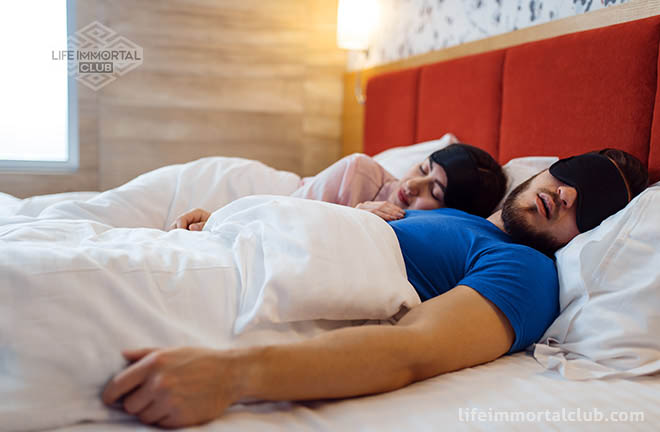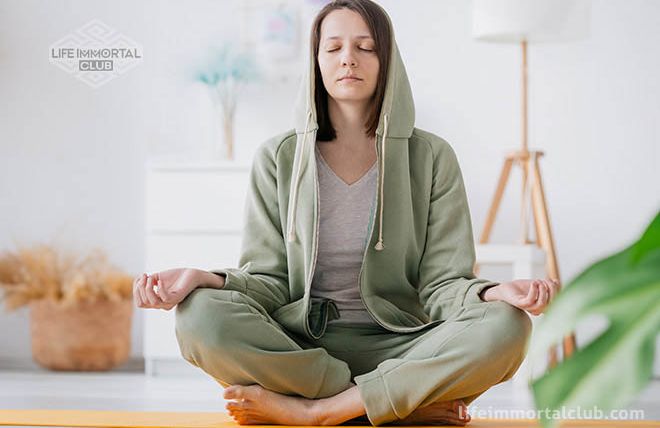Sleep Tight: Tips for Improving Sleep Hygiene and Beating Insomnia

Introduction

Struggling with sleep can be a frustrating and exhausting experience. Many of us have experienced the feeling of staring at the ceiling, tossing and turning as we desperately try to fall asleep. Getting enough good quality sleep is essential for our physical and mental health, but many of us neglect to prioritize it in our busy lives.
This is where sleep hygiene comes in. Simply put, sleep hygiene refers to the habits and practices that promote healthy, restful sleep.
It includes things like creating a comfortable sleeping environment, establishing a consistent sleep schedule, avoiding stimulants before bedtime, and relaxing techniques to promote restful slumber. As someone who has struggled with insomnia on and off for years, I know firsthand how important good sleep hygiene can be.
Despite trying numerous medications and treatments over the years, it wasn't until I began implementing healthy sleep habits that my insomnia finally eased up. In this article, I will share my tips for improving your own sleep hygiene so you can beat insomnia once and for all.
From creating a comfortable sleeping environment to addressing underlying health conditions that affect your ability to get enough restful slumber, we'll cover everything you need to know about achieving better quality shut-eye. So let's dive in!
Creating a Sleep-Conducive Environment
The Importance of Comfortable Bedding and Pillows
When it comes to getting a good night's sleep, your bedding and pillows play a huge role. You want to make sure that your mattress isn't too hard or too soft, as this can cause discomfort and result in tossing and turning throughout the night.
Ideally, your mattress should be firm enough to provide support for your back, but soft enough to cushion pressure points such as hips and shoulders. In addition to having a comfortable mattress, you should also invest in high-quality pillows that provide proper support for your neck and head.
Pillows that are too flat or too thick can cause neck pain or headaches. Choose a pillow that is the right height for your sleeping position – back sleepers typically need thinner pillows than side sleepers.
Temperature Control in the Bedroom
The temperature of your bedroom can also significantly impact the quality of your sleep. Generally speaking, most people find that their optimal sleeping temperature is between 60-67 degrees Fahrenheit (15-19 degrees Celsius). Of course, this can vary depending on personal preference and individual factors such as age or medical conditions.
To optimize temperature control in the bedroom, consider investing in bedding materials designed for improved breathability such as bamboo sheets or linen blankets. During summer months, use fans or air conditioning units to maintain a cool temperature while during winter months consider using space heaters.
Noise Reduction Techniques
External noises like traffic or noisy neighbors can make it difficult to fall asleep or stay asleep through the night. Noise reduction techniques are necessary for those who have trouble with external sounds disturbing their restful slumber.
One effective method is to use white noise machines which drown out external noises with constant sound frequencies promoting relaxation instead of distraction from noises around you. Another option is earplugs, which can block out sounds to allow for a more peaceful sleep.
Overall, creating a sleep-conducive environment in terms of comfortable bedding and pillows, optimal temperature control, and noise reduction techniques is essential for getting a good night's rest. By taking the time to invest in these aspects of your sleeping space, you can improve your odds of falling asleep faster and staying asleep longer.
Establishing a Consistent Sleep Schedule
Setting a regular bedtime and wake-up time
One of the best things you can do for your sleep hygiene is to set a regular bedtime and wake-up time. This means going to bed and waking up at the same time every day, even on weekends. By doing this, you help regulate your body's internal clock, which will make it easier for you to fall asleep and stay asleep throughout the night.
It can be tempting to stay up late or sleep in on the weekends, but this can actually disrupt your sleep cycle and make it harder for you to fall asleep during the week. If you're having trouble sticking to a regular schedule, try setting an alarm for both bedtime and wake-up time until it becomes a habit.
Avoiding naps during the day
While napping during the day may feel refreshing in the moment, it can actually be detrimental to your sleep hygiene. This is because napping can throw off your body's natural sleep rhythm and make it harder for you to fall asleep at night.
If you find yourself feeling tired during the day, try taking short breaks instead of naps. Get up from your desk and stretch, take a quick walk outside, or do some deep breathing exercises.
These activities will help boost blood flow and oxygen levels in your brain without disrupting your nighttime rest. In general, if getting quality sleep at night is one of your goals (which it should be!), then avoiding daytime snoozes should be high on that list too.
Bonus tip: Adjusting gradually
If you're not used to going to bed or waking up at a specific time every day, don't try to change everything overnight (pun intended). Adjust gradually over several days or weeks by setting small goals that move towards that ideal schedule. For example, if you normally go to bed at midnight and wake up at 9am, but want to get to bed by 11pm and wake up at 7am, start by setting your bedtime back by 15-30 minutes each night until you reach your goal.
By taking small steps towards your sleep goals, you'll be more likely to stick with the new routine in the long run. Remember, consistency is key when it comes to establishing healthy sleep habits.
Limiting Stimulants Before Bedtime
Avoiding Caffeine, Nicotine, and Alcohol Before Bedtime
One of the most effective ways to promote better sleep is to limit your intake of caffeine, nicotine, and alcohol in the hours leading up to bedtime. Caffeine is a stimulant that can keep you awake and alert for several hours after consumption.
Nicotine can also interfere with sleep quality by causing frequent awakenings throughout the night. Similarly, alcohol may make you feel sleepy at first but can disrupt your natural sleep cycle and lead to poor sleep quality.
If you're having trouble sleeping, consider cutting back on these substances or avoiding them altogether before bed. Try switching to decaffeinated beverages or herbal tea in the evening instead of caffeinated drinks.
If you smoke, try quitting or limiting your nicotine intake later in the day. And while a glass of wine or beer may seem like a relaxing way to unwind before bed, it's best to avoid alcohol within a few hours of bedtime if possible.
Reducing Screen Time Before Bed
Another common culprit for poor sleep is exposure to screens before bedtime. The blue light emitted by electronic devices like smartphones and tablets can interfere with our natural circadian rhythm and make it harder for us to fall asleep at night. Additionally, using these devices right before bed can cause mental stimulation that keeps our brains active when we should be winding down.
To combat this issue, try turning off all electronics at least an hour before bedtime. Avoid scrolling through social media or watching television right before you go to bed - instead, try reading a book or practicing relaxing activities like yoga or meditation.
Making small changes like avoiding caffeine and reducing screen time might seem insignificant but they can have a big impact on your overall sleep hygiene.To improve your chances of falling asleep quickly and staying asleep throughout the night, try to establish a consistent routine that includes limiting your intake of stimulants and avoiding screens before bedtime. With a little effort and some patience, you should be able to achieve better sleep hygiene and feel more refreshed in the morning!
Relaxation Techniques to Promote Sleep
Do you ever find yourself tossing and turning while trying to fall asleep? Are you tired of taking sleep aids that leave you feeling groggy in the morning?
If so, relaxation techniques may be just what you need to promote a peaceful slumber. Here are three relaxation techniques that can help you fall asleep faster and wake up feeling refreshed.
Deep Breathing Exercises
One of the most effective relaxation techniques is deep breathing exercises. Slow, deep breathing can decrease heart rate and blood pressure, which can help calm both the body and mind. To perform deep breathing exercises, find a comfortable position in bed with your eyes closed.
Inhale deeply through your nose for a count of four or five, hold your breath for a few seconds, then exhale slowly through your mouth for a count of six or seven. Repeat this exercise for several minutes until you feel yourself becoming more relaxed.
Progressive Muscle Relaxation
If you carry tension in your muscles due to stress or anxiety, progressive muscle relaxation may be an effective technique for promoting sleep. This technique involves tensing and then relaxing each muscle group starting from the feet and working up to the head.
Start by tensing the muscles in your feet as tightly as possible, then release them suddenly while taking deep breaths. Move on to the muscles in your calves, thighs, abdomen, arms, shoulders, neck and finally face till all parts have been relaxed.
Visualization Techniques
Visualization techniques involve imagining calming scenes or experiences that promote feelings of relaxation and security. Lie comfortably on your back with your eyes closed and picture yourself lying on a beach listening to waves crashing on shore alternatively imagine being on top of mountain enjoying fresh air with trees around or any other place that you find comforting.
Imagine the sounds, smells, and sensations of your chosen setting as vividly as possible. If thoughts wander away, acknowledge them without judgment, then gently bring your attention back to the imagined scene.
By practicing relaxation techniques like deep breathing exercises, progressive muscle relaxation and visualization techniques prior to sleeping or even during the day when feeling anxious or stressed can help promote better sleep hygiene and beat insomnia. The more you practice these techniques, the easier it will become for your mind and body to relax into a peaceful night's sleep.
Addressing Underlying Health Conditions That Affect Sleep
Sleep Apnea: A Silent Intruder
Sleep apnea is a condition that affects millions of people. It is characterized by pauses in breathing, which can occur up to hundreds of times per night.
This disruption leads to poor quality sleep and often results in excessive daytime fatigue, depression, and even heart disease. A sleep study is necessary to diagnose sleep apnea, but treatment can be life-changing.
CPAP (Continuous Positive Airway Pressure) therapy involves wearing a mask while sleeping that delivers air pressure to keep the airway open. It may take some time to adjust, but it’s worth it for better sleep and overall health.
Restless Leg Syndrome: The Uncontrollable Urge
Restless Leg Syndrome (RLS) is a neurological disorder characterized by an uncontrollable urge to move one’s legs while at rest. This sensation often occurs at night and can lead to difficulty falling or staying asleep.
RLS is linked with iron deficiency so increasing intake of iron-rich foods such as leafy greens, red meat, or taking supplements may help alleviate symptoms. Stretching before bedtime may also help reduce discomfort.
Chronic Pain: Breaking the Cycle
Chronic pain affects many people and can significantly impact their ability to get a good night's rest. Unfortunately, poor quality sleep can exacerbate pain levels in a never-ending cycle leading to a decrease in overall quality of life.
Regular exercise may help alleviate chronic pain as well as incorporating relaxation techniques such as meditation or gentle yoga before bedtime. Heat therapy such as hot showers or heating pads before bed may also help relax muscles and ease pain.
By addressing underlying health conditions that affect sleep we can finally break free from insomnia grips and achieve the restful rejuvenating nights we deserve! Remember not every tip works for everyone, so it’s essential to work with a healthcare professional to identify the best treatment plan for you. While it may take time and patience, it’s worth the effort in the end. Sweet dreams are possible!
Recap of Tips for Improving Sleep Hygiene and Beating Insomnia
Sleep is essential for overall health and well-being, but many people struggle to get a good night's rest. If you're one of them, the good news is that there are plenty of ways to improve your sleep hygiene and beat insomnia. In this article, we've covered some of the most effective tips for getting better sleep.
First, it's important to create a sleep-conducive environment. This means making sure you have comfortable bedding and pillows, controlling the temperature in your bedroom, and reducing noise as much as possible.
You should also aim to establish a consistent sleep schedule by going to bed and waking up at the same time every day. Avoiding stimulants before bedtime is another crucial aspect of good sleep hygiene.Caffeine, nicotine, and alcohol can all interfere with your ability to fall asleep or stay asleep throughout the night. Additionally, reducing screen time before bed can help you wind down more easily.
Relaxation techniques like deep breathing exercises, progressive muscle relaxation, or visualization techniques are also helpful in promoting sleep. If you have an underlying health condition that affects your ability to sleep well, it's important to address it so that you can improve your quality of life.
Encouragement to Prioritize Good Sleep Habits for Overall Health and Well-being
Getting enough quality sleep isn't just important for avoiding grogginess during the day - it's crucial for maintaining overall health and well-being. Numerous studies have shown that poor sleeping habits are linked to increased risk for obesity, diabetes, heart disease, depression/anxiety disorders among others.
While we all lead busy lives with packed schedules from work obligations or parenting duties alike--too often our approach towards our own wellbeing is reactive instead of proactive; focusing on problems only after they arise , rather than mitigating them before they even start. A good night's sleep sets the tone for the rest of your day, and it's easier to make healthy choices when you're well-rested.
Conclusion
Prioritizing sleep hygiene is an investment in yourself that pays off in countless ways, from boosting productivity and mental clarity to improving your immune system and overall quality of life. There are many simple steps you can take to improve your sleep hygiene and beat insomnia.
By creating a sleep-conducive environment, establishing a consistent schedule, avoiding stimulants before bedtime, using relaxation techniques, addressing potential health conditions that affect our body's natural ability to sleep--you'll be on your way towards better health and wellbeing. Remember: good sleep doesn't just feel great--it can quite literally be life-changing







